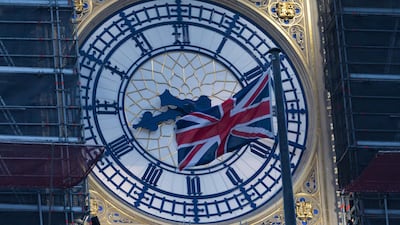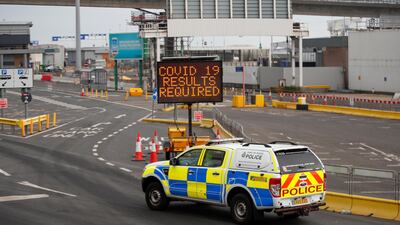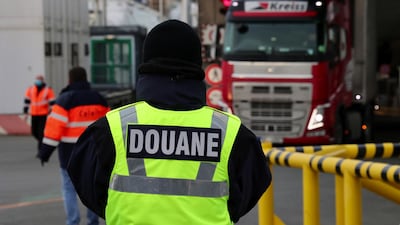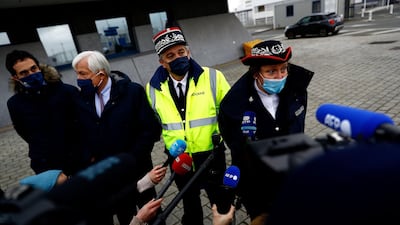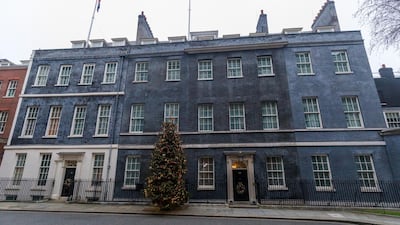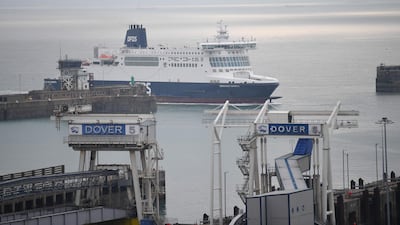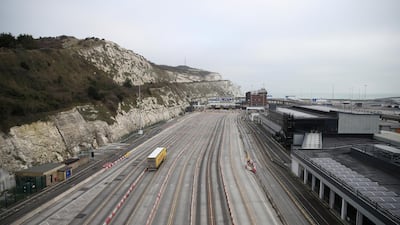Traditionally, paper is given as a first-year anniversary gift and cotton is for the second anniversary.
But many British businesses feel that paper has been their second Brexit anniversary gift as well, because the amount of red tape and paperwork they have to deal with shows little sign of being reduced.
On Christmas Eve 2020, the UK and the European Union finally reached agreement for a trade deal when the UK left the EU. That deal was signed six days later and became the EU–UK Trade and Co-operation Agreement (TCA).
Two years later, small businesses in the UK who used to export to the European Union as easily as they sold their goods within the UK, have had 24 months of mounting bureaucracy.
The problem is not the customs duties, largely eliminated by the post-Brexit free trade agreement between London and Brussels, but rather a mountain of new regulatory paperwork, which takes time and money to complete.
Just outside London, AGL Automation specialises in sensors and technical equipment for use in hazardous areas, clean and sterile environments like pharmaceutical laboratories and remote locations. The company imports and exports products to and from the EU.
For the company's director, Gary Friend, it's a "headache almost every time we import or export to and from the EU".
"We have to pay value added tax up front and then claim it back. Eventually, we'll look to register the company in Ireland for EU business to avoid all the Brexit-related red tape," he told The National.
"It's cost, cost, cost with no benefit," said Adrian Hanrahan, chief executive of a small chemicals company, Robinson Brothers, based in central England and for which the EU is a key market. The company exports 70 per cent of everything it makes, and half of that goes to the EU.
"We've added probably 25 per cent extra now on our administration costs just to cope with the changing paperwork ... of getting stuff in from the EU and out of the EU," Mr Hanrahan said.
The company employs 265 people, producing chemicals used by sectors featuring food, electronics, pharmaceutical and other companies.
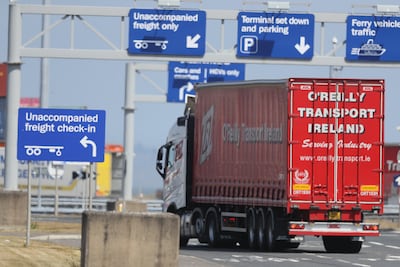
AGL Automation and Robinson Brothers are not alone in feeling the weight of red tape in post-Brexit Britain.
The business umbrella group, the British Chambers of Commerce (BCC) said this week that 56 per cent of UK businesses still face difficulties adapting to new trading rules.
The survey by the BCC also found that four out of five (80 per cent) of companies had seen the cost of importing increase since January this year, more than half had seen their sales margins decrease and almost three quarters of manufacturers had experienced shortages of goods and services.
"Businesses feel they are banging their heads against a brick wall as nothing has been done to help them," said BCC director general Shevaun Haviland.
"The longer the current problems go unchecked, the more EU traders go elsewhere, and the more damage is done," she added.
The red tape is also a bureaucratic burden for the customers and suppliers of UK businesses in Europe. When the UK was part of the EU, very little red tape existed, but those companies in Europe with business relationships with UK companies now have an extra administrative load as well.
"We've had two or three very large German customers tell us that they're no longer going to come to us because it's too complex for them to work with anybody in the UK," Mr Hanrahan said.
"If this continues, then we have no other option but to shrink our offering to remain in business."
The UK's food, farming and fisheries minister Mark Spencer said this week that the government was making progress in reducing Brexit-related red tape.
"Of course, there's always more that we can do to try and ease the way for the passage of trade. We're very keen to do that," he told Times Radio.
"We're a free and open trading nation. We want to work closely with our EU colleagues, we want to try and reduce that red tape if there is any red tape on their side of the channel, so of course we want to keep those channels of trade open in both directions."
There has been much debate over the lpast two years about exactly how much Brexit has cost and when and how large any potential windfall might arrive for the UK economy as a result of leaving the European Union ― the so-called Brexit dividend.
The Centre for European Reform claimed this week that Brexit had shaved 5.5 per cent off the UK's gross domestic product and caused an 11 per cent drop in inward investment into the UK.
Bank of England monetary policy committee member Swati Dhingra told MPs last month that Brexit was to blame for "a much bigger slowdown in trade in the UK compared to the rest of the world".
"There is a reasonable degree of consensus that Brexit has reduced UK trade by perhaps 10 per cent to 15 per cent compared to a no-Brexit scenario," said Jonathan Portes, an economist at King's College London.
Meanwhile, the government's own economic forecasting body, the Office for Budgetary Responsibility (OBR), estimates that Brexit will reduce the country's long-term output by about 4 per cent.
Recent research by Aston University in Birmingham showed that UK exports to the EU fell by an average of 22.9 per cent in the first 15 months after the introduction of the TCA.
The research also showed that during the same period the variety of products exported to the EU shrank by 42 per cent.
“The product varieties that have disappeared are mostly those with low export value ― we know this because the average export value increased as the number of varieties declined. These products are the ones typically exported by small firms or new exporters, or are exported to new markets. And It’s those smaller businesses that would normally export much more in future, as they grow their volumes and products ― so that’s the UK’s future export pipeline being affected, which has bleak implications,” said Dr Oleksandr Shepotylo of Aston University.

With the UK probably already in a recession, with stubbornly high inflation and rising interest rates, the BCC wants the government to prioritise UK trade with the European Union.
One BCC proposal is to create a supplementary deal that cuts out checks on plant and animal exports, which would be very similar to the arrangement Switzerland has with the EU. Another proposal is to allow the CE-marked European goods to be used in the UK beyond 2024. A CE-marked good means it meets European safety, health and environmental standards.
Longer term, the BCC would like action on VAT, especially on low-value items made by small businesses. At the moment, the post-Brexit VAT rules can be a minefield for UK small businesses that in some cases, when added to handling and other charges, can double the prices of their products within the EU, making them far less competitive.
According to the BCC, trade with the EU accounts for 42 per cent of all UK exports, and much of that is by small businesses. Two years after the TCA, 77 per cent of businesses surveyed by the BCC say the agreement has not lead to an increase in sales, only in paperwork and associated administrative costs.
"This should provide deep pause for thought by decision makers. Dissatisfaction about what is not in the TCA has grown among businesses, as the last two years have progressed. The sudden imposition of non-tariff barriers in business sector after sector, has led many businesses to conclude it does not currently allow free trade," the BCC said.
Hilary Benn, Labour MP and co-convenor of the UK Trade and Business Commission, called on the government to make trade easier for British and EU companies.
"While deep in the grips of a cost-of-living crisis, it is imperative that the government now prioritises making trade with Europe easier by removing the barriers which their unworkable deal has created," he said.
The first five-year review of the TCA is due in 2026. But much needs to be done before that, say the UK's business groups, because if red tape is not reduced and trade with the UK's largest trading partner is not normalised, the outlook for British business will be bleak.
"Debate is essential so that the UK can start to address its current challenges. Of course, no one is suggesting going back into the EU, but there are collaborations, conversations and discussions that must be had. If the UK’s political leaders don’t acknowledge the facts, they are setting the course towards even longer-term problems,” said Prof Jun Du at Aston University.
